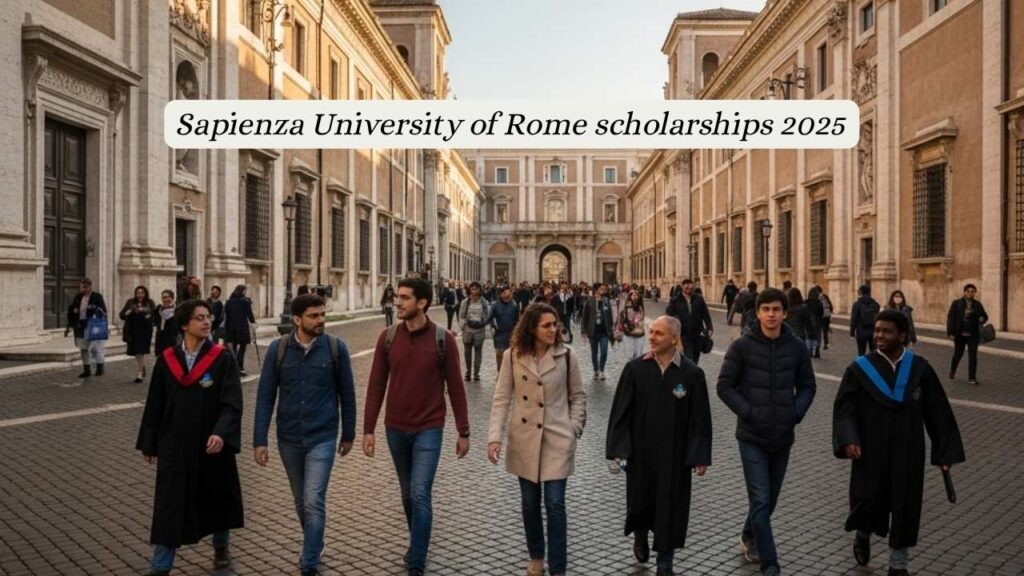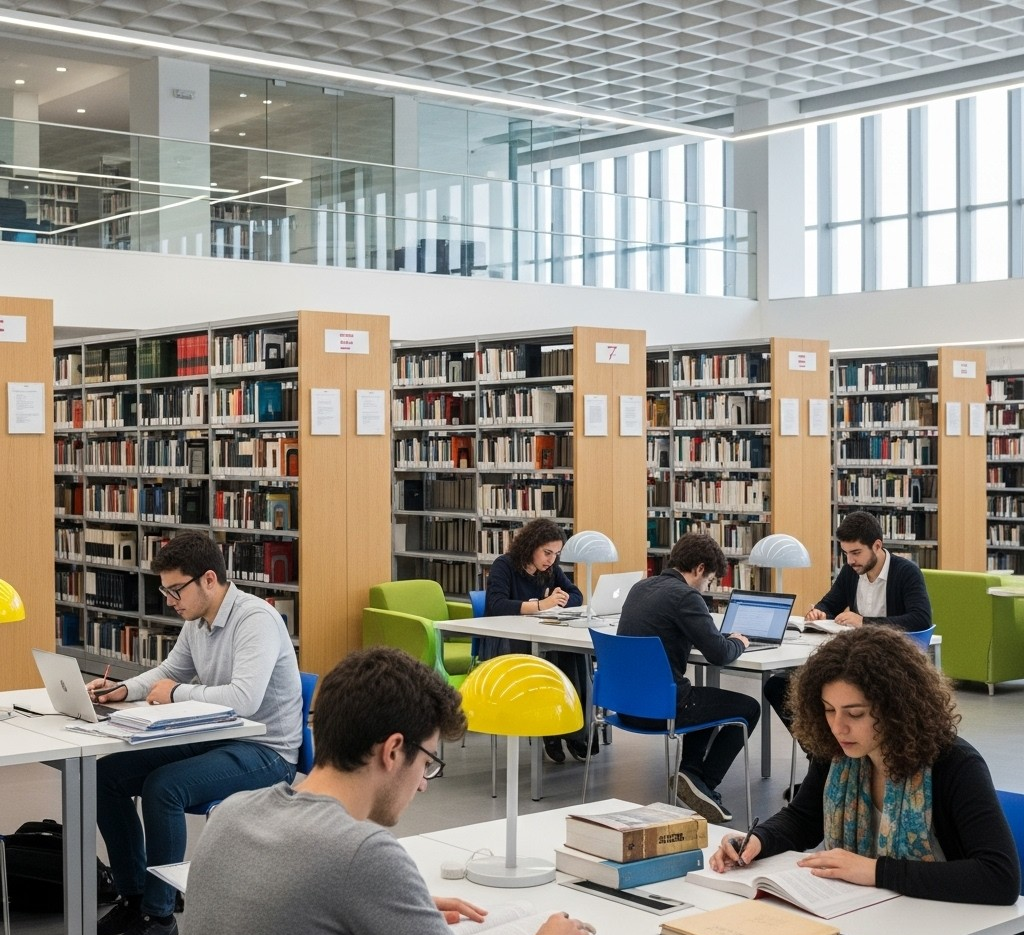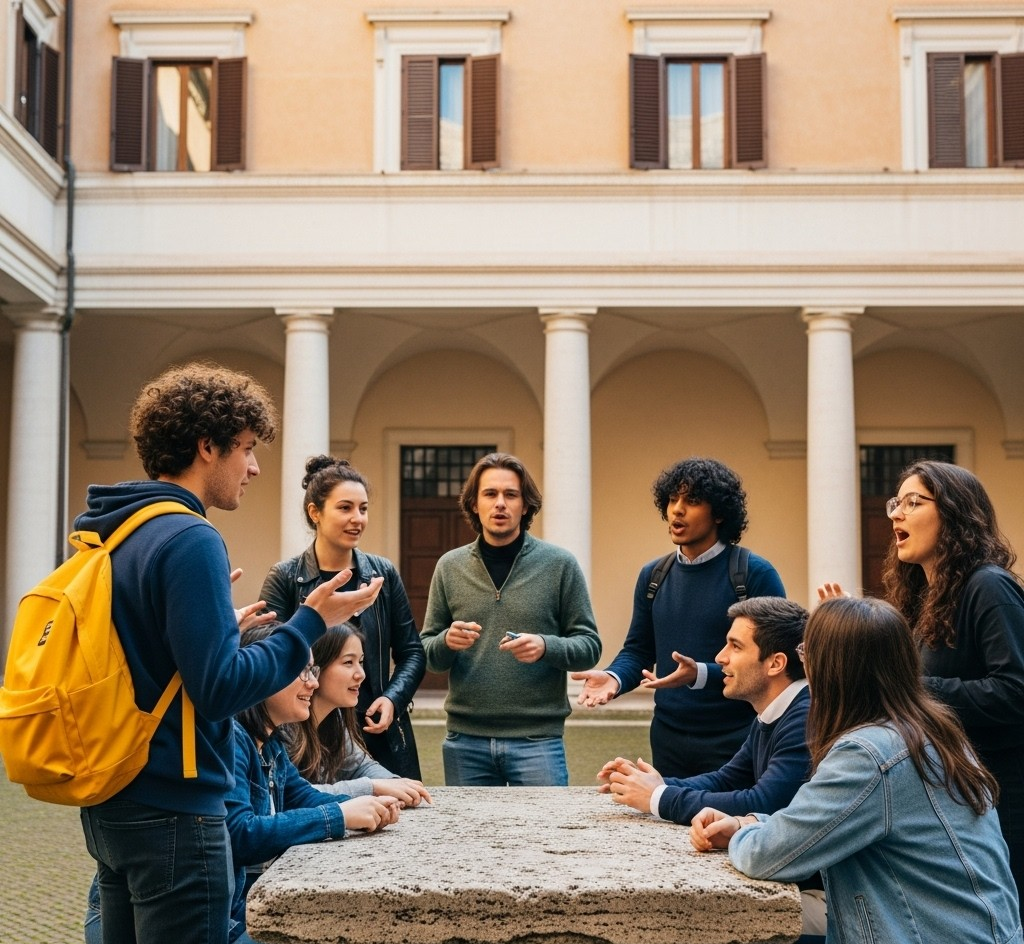Dreaming of walking through ancient streets while pursuing a world-class education? Sapienza University of Rome, one of the oldest and most prestigious universities globally, offers a wealth of opportunities for international students to make this dream a reality. Securing Sapienza University of Rome scholarships 2025 can significantly ease the financial burden, allowing you to focus on your studies and immerse yourself in the vibrant Roman culture. This guide is designed to provide you with comprehensive, actionable, and encouraging information to help you successfully navigate the scholarship application process.

Embarking on an international academic journey can feel daunting, particularly when considering the costs. Tuition fees, living expenses, and travel can quickly add up. But here’s the good news: Sapienza University of Rome, along with various Italian and international bodies, offers numerous scholarships designed specifically to support international students. From full tuition waivers to monthly stipends, these scholarships aim to attract the brightest minds from around the globe, ensuring that financial constraints don’t stand in the way of academic excellence.
Sapienza University of Rome Scholarships 2025 at a Glance
| Key Fact | Detail/Statistic |
| Tuition Fees | Range from €300-€1500/year for Bachelor’s and Master’s, based on country of residence. Sapienza University Admissions |
| PhD Scholarship Annual Gross | €16,243, with additional funding for research abroad. |
| “Don’t Miss Your Chance” Scholarship | Up to €4,300/year for Master’s students for up to 2 years. |
| “Wanted the Best” Scholarship | €3,000/year for Master’s students for up to 2 years. |
| Italian Government Scholarship | Fully funded, covering monthly payments of €900, tuition fees, and medical insurance. |
| Application Fee for Pre-selection | €30 per application (maximum 2 applications). Sapienza University Admissions |
Types of Scholarships Available for Sapienza University of Rome 2025
Sapienza University and affiliated organizations offer a diverse portfolio of scholarships. Understanding the different types is your first step towards identifying the best fit for your academic profile and financial needs.
University-Specific Scholarships
Sapienza University itself offers several scholarships aimed at both Italian and international students. These are often merit-based, recognizing academic excellence, or need-based, supporting students from lower-income backgrounds.
- “Don’t Miss Your Chance” Scholarship: This scholarship is particularly appealing for international Master’s degree students, offering a significant annual stipend of up to €4,300 for a maximum of two years. Eligibility often considers academic merit and sometimes specific language proficiencies. I’ve seen many successful applicants for this scholarship meticulously highlight their academic achievements and future goals in their personal statements.
- “Wanted the Best” Scholarship: Another excellent opportunity for high-achieving graduate students, this scholarship provides €3,000 per year, also for up to two years. It targets students demonstrating exceptional academic promise.
- PhD Scholarships – 41st Cycle (2025/2026): Sapienza University offers numerous PhD scholarships across a wide range of disciplines. These are highly competitive and typically provide an annual gross scholarship of €16,243. There’s also additional funding (a 50% increase) for authorized research periods abroad, and a higher amount of €19,800 per year for the top international candidate in each program. The application period for these usually opens in May and closes in June for the following academic year.
- Tuition Fee Waivers/Reductions: Based on merit or family income, Sapienza can significantly reduce or even waive tuition fees. For students with modest family incomes, it’s possible to study for as little as €300 a year. To qualify for income-based reductions, you’ll need to provide specific income-related documents from your home country.
Italian Government Scholarships
Beyond the university’s offerings, the Italian Ministry of Foreign Affairs and International Cooperation (MAECI) provides scholarships for foreign and Italian citizens residing abroad. These are highly sought-after, often fully funded opportunities.
- Benefits: These scholarships typically cover tuition fees, provide a monthly allowance (around €900), and include health and medical insurance.
- Eligibility: Generally open to international students for Master’s and PhD programs. Specific age limits and language proficiency requirements (Italian or English, depending on the course) apply. Applications usually require an admission letter from an Italian university.
Regional Scholarships (DSU Scholarships)
Each region in Italy has its own “Diritto allo Studio Universitario” (DSU) or Right to University Study scholarships. In Lazio, where Rome is located, this is managed by LazioDisco.
- Coverage: These scholarships are typically based on financial need and student merit. They can cover tuition fees, provide free meals, accommodation, and transport support, significantly reducing living costs.
- Eligibility: Primarily for low-income students, with specific ISEE (Equivalent Economic Situation Indicator) thresholds. They are available to both domestic and international students. These are often paid in installments and require students to meet certain academic progress conditions.

Eligibility Criteria: Do You Qualify for Sapienza University of Rome Scholarships 2025?
While specific criteria vary for each scholarship, some general requirements apply to most Sapienza University of Rome scholarships 2025 and other Italian scholarships:
- Academic Qualification:
- Bachelor’s: A high school diploma (or equivalent) achieved after at least 12 years of schooling.
- Master’s: A Bachelor’s degree (first-cycle qualification) from your home country.
- PhD: A Master’s degree (second-cycle qualification) by the application deadline, valid for PhD studies in your country of origin and recognized in Italy.
- Language Proficiency:
- English-Taught Programs: A B2 level in English (CEFR) is typically required. Accepted tests include IELTS (5.5 or higher), TOEFL iBT (80 or higher), Cambridge English B2 First, or Trinity College London ISE II. Some programs might waive this based on an online interview or alternative certifications, so always check the specific call for applications. Duolingo certificates are generally not accepted.
- Italian-Taught Programs: A B2 level in Italian (CEFR) is mandatory for non-EU citizens residing abroad and requiring a study visa. This can be certified by CELI, CILS, CERT.IT, or PLIDA certificates, or by taking an online Italian language test organized by CISIA.
- Age Limits: Some scholarships, particularly government-funded ones, may have age restrictions (e.g., under 28 for Master’s, under 30 for PhD, with exceptions for renewals).
- Financial Need (for DSU and some university scholarships): Demonstrated economic status, often assessed through an ISEE certificate or equivalent documentation for international students whose families have income outside Italy.
- Merit: A strong academic record, typically reflected in your GPA or equivalent grading system. For some scholarships like “Wanted the Best,” a GPA of 105/110 or higher is sought. For PhDs, selection is based on qualifications and/or exams.
Navigating the Application Process for Sapienza University of Rome Scholarships 2025
The application process requires meticulous attention to detail and adherence to deadlines. In my experience advising students, one common hurdle is misunderstanding the document requirements and submission portals. Start early!
- Choose Your Program: First and foremost, identify the Bachelor’s, Master’s, or PhD program at Sapienza University of Rome that aligns with your academic and career goals. Check its specific admission requirements.
- Pre-selection and Universitaly Portal: For non-EU candidates residing abroad and requiring a visa, pre-enrolment on the UNIVERSITALY platform is mandatory, usually by late June for the 2025-2026 academic year. Some programs also have mandatory pre-selection on the MoveIN platform, with deadlines as early as April.
- Gather Required Documents: Prepare all necessary documents well in advance. These generally include:
- Passport
- High School Diploma and Transcript of Records (translated and legalized/apostilled)
- University Degree and Transcript of Records (for Master’s/PhD applicants, translated and legalized/apostilled)
- English or Italian Language Certificate (if required)
- Curriculum Vitae (CV)
- Personal Statement/Motivation Letter
- Research Proposal (for PhD programs)
- Reference Letter(s) (mention at least one referee contact)
- Proof of financial means (for visa applications and some need-based scholarships – typically around €450 per month).
- Application Fee: For pre-selection, a €30 application fee per course is typically required, payable via PagoPA on the Infostud portal.
- Apply for Scholarships:
- University Scholarships: Many Sapienza scholarships (like “Don’t Miss Your Chance” or “Wanted the Best”) might be awarded automatically based on your admission application and academic merit, or might require a separate, simple application. Check the specific scholarship calls on Sapienza’s official scholarships page.
- Italian Government Scholarships: Apply through the dedicated MAECI portal, typically by June. You’ll need an admission letter from an Italian university to finalize this.
- DSU/Regional Scholarships: Apply through the LazioDisco website. These applications open annually, usually between July and September, and require specific income documentation.
- Visa Application (for Non-EU citizens): After receiving a pre-acceptance letter from Sapienza and securing scholarship confirmation, apply for your study visa at the Italian Embassy or Consulate in your country of residence. This process also has strict deadlines, often by late June.

Tips for a Successful Scholarship Application
Securing a scholarship is highly competitive, but with a strategic approach, you can significantly boost your chances.
- Start Early: This cannot be stressed enough. From document collection to language tests, everything takes time.
- Tailor Your Application: Don’t use generic statements. Customize your motivation letter and CV for each scholarship, highlighting how your skills and aspirations align with the scholarship’s goals and the university’s offerings.
- Showcase Your Achievements: Clearly articulate your academic successes, any research experience, volunteer work, or extracurricular activities that demonstrate your dedication, leadership, and potential.
Quantum Leaps in Biotech: Your Guide to the QUBIC x DETSI 2025 Scholarship at UQ
The University of Western Australia International RTP Stipend Scholarships 2026
FAQ
Q1: Can I apply for multiple scholarships at Sapienza University of Rome for 2025?
Yes, you can generally apply for multiple scholarships, provided you meet the individual eligibility criteria for each. However, some scholarships might have clauses about not holding other concurrent scholarships. Always read the terms and conditions carefully. For instance, you could apply for a university-specific merit scholarship and a DSU regional scholarship.
Q2: What is the ISEE certificate and how do international students get it for DSU scholarships?
The ISEE (Indicatore della Situazione Economica Equivalente) is an indicator of the economic situation in Italy. For international students whose families reside and earn income outside Italy, you will typically need to provide equivalent financial documentation from your home country, certified by the Italian Embassy or Consulate. This usually involves income statements, property declarations, and other financial documents.
Q3: Are there any scholarships for short-term programs or exchange students at Sapienza?
Yes, Sapienza University participates in various international mobility programs like Erasmus+, which offer scholarships and support for exchange students for short-term study periods. While not full degree scholarships, they can significantly aid short-term academic stays.
Q4: How important is a strong motivation letter for Sapienza University of Rome scholarships?
A strong motivation letter is crucial, especially for competitive scholarships. It’s your opportunity to articulate your academic interests, career goals, reasons for choosing Sapienza and your specific program, and how the scholarship will help you achieve your aspirations. It should be personal, compelling, and free of grammatical errors.










